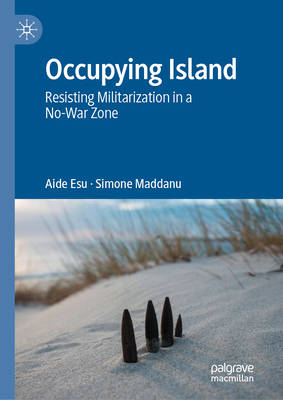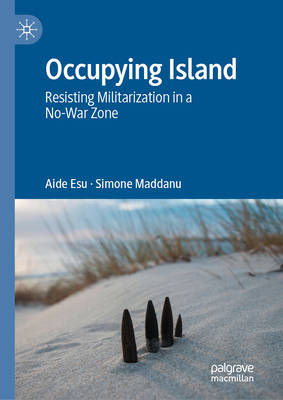
- Afhalen na 1 uur in een winkel met voorraad
- Gratis thuislevering in België vanaf € 30
- Ruim aanbod met 7 miljoen producten
- Afhalen na 1 uur in een winkel met voorraad
- Gratis thuislevering in België vanaf € 30
- Ruim aanbod met 7 miljoen producten
Zoeken
Occupying Island
Resisting Militarization in a No-War Zone
Aide Esu, Simone Maddanu
Hardcover | Engels
€ 176,45
+ 352 punten
Omschrijving
This book offers an analytical perspective of the unfolding militarization in the Italian island of Sardinia, grounded in extensive ethnographic fieldwork, and using in-depth documentation analysis. Since the late 1950s, the island, which is the second largest in the Mediterranean, has been one of the main hubs for weapons testing and interforce training for the Italian armed forces and NATO. The book retraces the extent and the significance of military bases in Sardinia, and the rise of local collective actions and resistance. This case study offers relevant insights to understand the strategic role of islands in the post-war military space control, more specifically on geo-strategic policy in the Mediterranean and its effects on military/civil relations. The relevance of the militarization of islands shed a light on opaque institutional decision processes that reinforce the figure of subaltern subjects - relegated to peripheral spaces and subdued to extractivism, dependency, and exclusion. It will be of interest to students and researchers of sociology, sociology of environment and risk, globalization, social movement studies, postcolonial studies and political studies.
Specificaties
Betrokkenen
- Auteur(s):
- Uitgeverij:
Inhoud
- Aantal bladzijden:
- 193
- Taal:
- Engels
Eigenschappen
- Productcode (EAN):
- 9783032004185
- Verschijningsdatum:
- 2/09/2025
- Uitvoering:
- Hardcover
- Formaat:
- Genaaid
- Afmetingen:
- 147 mm x 201 mm
- Gewicht:
- 385 g

Alleen bij Standaard Boekhandel
+ 352 punten op je klantenkaart van Standaard Boekhandel
Beoordelingen
We publiceren alleen reviews die voldoen aan de voorwaarden voor reviews. Bekijk onze voorwaarden voor reviews.







